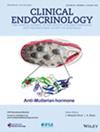Testicular Function After Immune-Checkpoint Inhibitors Treatment
Abstract
Objective
To investigate the effects of immune-checkpoint inhibitors (ICIs) on spermatogenesis and testicular endocrine function in reproductive-age men with melanoma.
Design
Prospective, mixed longitudinal and cross-sectional cohort study.
Patients
Twenty-nine men aged 19–46 years undergoing ICI therapy for melanoma at two Australian centres between 2019 and 2024. Three patients were excluded due to subsequent gonadotoxic therapies. The remaining 26 were evaluable.
Measurements
Semen analysis and serum hormone levels (FSH, LH, testosterone) were assessed at baseline and after ICI exposure. Patients with prior cytotoxic chemotherapy or pelvic radiotherapy were excluded.
Results
Among 26 evaluable patients, one man developed persistent azoospermia with marked serum FSH elevation. Overall, median total sperm output per ejaculate declined by 34% (193–127 million per ejaculate) and sperm concentration by 30% (61–43 million/mL), neither statistically significant before or after excluding the case of presumed autoimmune orchitis. On treatment, serum LH and testosterone remained stable while the increase in serum FSH (p = 0.04) was no longer significant after excluding the single man with auto-immune orchitis.
Conclusions
ICI treatment may be associated with minimal spermatogenic dysfunction, as reflected by modest reductions in sperm output and increased serum FSH levels, despite preserved serum LH and testosterone concentrations, but mostly due to a rare (4% prevalence) case of autoimmune orchitis. The unpredictability of these effects supports routine fertility preservation counselling in young men before ICI initiation.


 求助内容:
求助内容: 应助结果提醒方式:
应助结果提醒方式:


